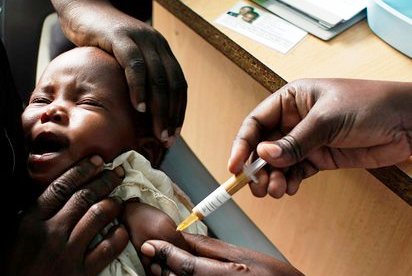Reducing the burden of malaria in Nigeria

The World Health Organisation (WHO) observes that cases and deaths arising from malaria have reduced globally in the past 15 years due to improved access to first-line treatment.
The organisation specifically notes that there was a remarkable scale-up of malaria control interventions in Nigeria between 2001 and 2013.
Malaria is a life threatening disease which is transmitted by the bite of the female anopheles mosquito.
According to medical experts, fever, nausea, vomiting, weakness of the body, headaches, constant sweats, dry cough and chills, among others, can mark the onset of malaria which usually takes between 10 days and 25 days.
Although the Roll Back Malaria Partnership insists that there are estimated 300 million severe cases of malaria every year around the world, medical experts agree with WHO that the fight against malaria has yielded striking progress.
The remarkable progress notwithstanding, the Federal Government says it has begun the training of Community Pharmacists and Patent Proprietary Medicine Vendors (PPMV) on the use of Rapid Diagnostics Tests aimed at further reducing the burden of malaria by 2020.
The National Coordinator, National Malaria Elimination Programme, Dr Nnenna Ezeigwe, said this during training of PPMV in Lagos recently.
“We discovered that more than 60 per cent of the Nigerian population goes to the pharmacists and patent medicine dealers for treatment of malaria and other ailments.
“This is why we decided to work in collaboration with the Pharmacists Council of Nigeria, Association of Patent Proprietary Medicine Vendors as well as state governments, to ensure that incidence of malaria is reduced by 2020.
“We are covering 24 states in Nigeria in this particular exercise with support from the global fund,’’ she said.
She advised that service providers should test patients and urged patients as well to get tested before receiving treatment for malaria.
Ezeigwe explained that “the malaria policy states that every suspected malaria case must be tested and confirmed before treatment can be administered on patients.’’
She insisted that malarial parasites could develop resistance to drugs if such drugs were administered on somebody suspected to have malaria without testing.
She, however, noticed that chloroquine had been somewhat ineffective drug of choice for malarial treatment after several studies.
“It was beneficial at some point but then at some point resistance sets in, the parasite we were fighting developed resistant to the drug (chloroquine).
“So the current treatment that has been effective is with Artemisinin Combination Therapy (ACT) but we are also monitoring it to check if there is any resistance at any point.
According to her, this process – Test Treat Track policy – has been in force for many years in the country with little or no compliance.
She observed that although implementing the policy might take time, “it will save many lives at the end.
“If we discover that a vendor continues to treat malaria without testing and there is evidence for it, then such persons will not be registered as it is part of the registration criteria with the PCN,’’ Ezeigwe said.
She urged pharmacists not attend to any patient that refused to go for test before requesting for treatment.
Irrespective of this, Dr Godwin Ntadom, Head, Case Management Branch, National Malaria Elimination Programme, said that the department would organise public enlightenment programmes on the right treatment for malaria.
In addition, Dr Kola Maxwell, Country Director, Malaria Consortium a non-governmental organisation, said guidelines and tools had been developed to improve the quality of care for malaria.
He also said that through the Support to National Malaria Programme, the organisation had trained 23,000 health workers by using the guidelines including manuals.
But stakeholders insist that effective management of all malaria-treatment related programmes remains one of the viable strategies of eliminating malaria.
They recommend the use of long-lasting insecticidal net, indoor residual spraying and environmental management as other methods of lessening the burden of malaria by 2020.
By and large, medical experts advise that keeping the environment clean and removing dirty water where mosquitoes can breed around houses will ensure low incidence of malaria.







